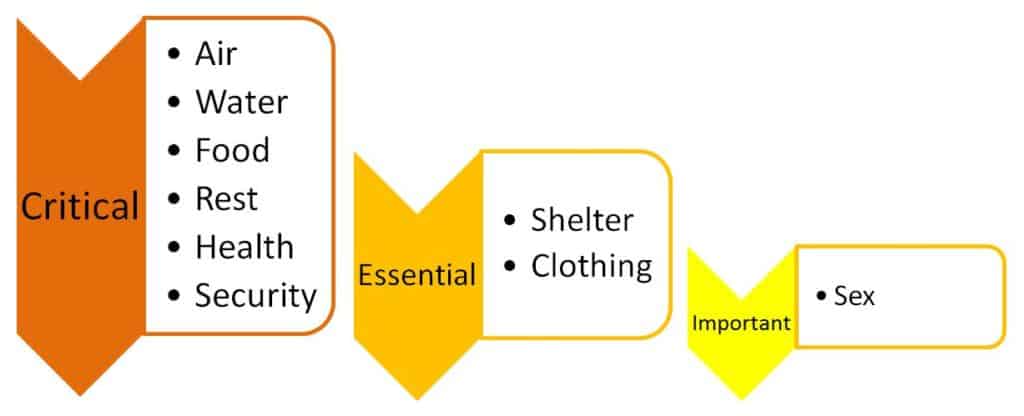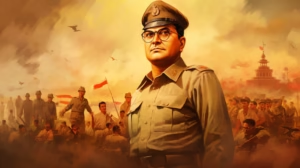At first glance, it seems like everyone in the world is after happiness one way or another. Our definition of what constitute happiness and the path each of us take to it might be different but it can be said with some certainty that we all are striving towards a better state of wellbeing, one way or another. This goes well with the definition of Happiness as defined by Wikipedia. It states Happiness as a mental or emotional state of wellbeing defined by positive or pleasant emotions ranging from contentment to intense joy. So it may not sound totally wrong if we equate our drive for a better state of wellbeing to our pursuit of happiness.
What is more important than Happiness?
But the above generalisation is only partially true after all. While we all aim for a better state of wellbeing it is not our first priority. In fact, it is far from it. A lot of us who care to think about happiness forget something more basic need that we all have. When we talk of wellbeing it means that we have taken something else which is more fundamental as a given which need not be true for all of us.
What is it? Care to guess? Well, it’s the obvious one – Our bloody need for survival. Above everything else that we are after, our first and foremost priority at all times is to ensure our survival. Only after we have met this need, we focus on improving our wellbeing. So, easily, our need for survival is the most importance need and if it gets threatened anytime, we drop everything else and focus on ensuring we survive the immediate threat first. Surely, there is no debating this. The only big exception to this is posed by those who attempt or commit suicide. For them, at that time, they vividly see a future state where their wellbeing suffers significantly to strongly feel that surviving is not worth the effort. While there is indeed some debate online as whether this affects other animals, it can be said that this exception largely applies to us, humans.
Experts and their problem of Oversimplification
Now, coming back to our need for survival, what aspects of life can be deemed critical for survival in this day and age? We tend to term every instinctive reaction to our need for survival which is totally wrong. For example, in the best-selling book the “The Chimp Paradox” the author refers our fear of stage to our fear for survival which I strongly feel as incorrect. When we go on the stage, our fear is not of dying but the fear of ridicule if we get out act wrong. If we really fear our survival (because we think that someone from audience might shoot us down or the stage might collapse) then we will never take to the stage.
It is a common trend for experts to club these two types of fears – the fear of ridicule and the fear of death and I can see that it is easy for us to digest. However, we must have known by now that not all that we can digest easily is good for us and so is the case with this. This over simplified approach may help us to answer our fears quickly as there is only one answer to every question – our need for survival. However, it is certain to create confusion about ourselves in various circumstances but only when we can see the distinction between our needs, we can see through this extreme simplification. It would feel like being given baby food to someone who is 15. This was the main reason why I could not go beyond the first section of the above book.
What are our Critical basic needs?
So with this distinction, what do I consider as critical to surviving? Let’s have a look. First and foremost, we need clean air & water and a regular supply of good food and we seek to ensure that we have it all the time. Our sleep and rest are not talked about in the same breath but the fact is we spend nearly one-third of our lives in the bed resting. So, it is obvious that sleep & rest are critical for our survival as well. Most of us might find it harder to go sleepless for a night than to go hungry for a day.

Even if we have all of the above but fail to have good health then it means that our survival is at risk. Even for minor illnesses like fever, we tend to abandon all our quests (albeit for a short period) and focus on getting back to full fitness first. Even if you are the great James Bond and your cause is to save the world, the mission had to wait until your illness is gone (movies may not show James lying on bed with a wet cloth on his forehead but you can trust me on this). If the illness is long term in nature then it makes us reevaluate our priorities drastically. Hence, we try to ensure that we are healthy at all times.
Next, we also need a sense of security to feel that we will not be hurt by anyone or anything at all times. If at all we feel threatened then we relocate to a safer place even if it means that some of the above needs get hit. Look at heart-wrenching migration from Syria and other countries where people who had a good life are risking their lives to get to EU to get a better sense of security.
What are our Non-Critical basic needs?
Where does Clothing and Shelter stand in terms of its importance for survival? In India, there is a famous sentence in Hindi which talks about three things as critical – Food, Clothing and a House. In fact a famous movie was created with this phrase but the fact is, it cannot be further from the truth. I agree that our need for shelter & clothing are important needs but they are not as critical as the ones discussed till now. A safe shelter does help us protect ourselves from bad weather conditions and at times give us a sense of security. So, it is indeed needed but if at a given locality, the weather conditions are favourable and the sense of security is good then having a shelter is not a must. Millions of people living on the streets can vouch for it. We, the privileged lot can only think of a good stable house when we hear the word ‘shelter’ but it is a broad generic term covering all types of shelters. So, a house is indeed a shelter but a shelter need not always be a house.
Next, our need to wear clothes is more a social need than anything else. We can clearly see this imposed social norm changes based on the place we live but as it is never too drastic, we fail to notice its reduced importance. It is only when we come in contact with tribal communities that we realise this obvious fact. For example, the Zo’é tribe in Brazil consider it normal not to wear anything regardless of the gender. On the other hand, clothing does bring benefits like protecting us from adverse weather conditions or to make us look more attractive and help us get appreciated by others.
Finally, we still have the instinctive urge to have sex but given that we have highly evolved brain, it enables us to control this urge or meet it via other ways without having to engage in a true sexual activity. This might not be what some of you wanted to hear but our need for sex is the least important of needs discussed so far. However, it is still an instinctive need which has to be met from time to time, one way or another. Hence, it comes under our need for survival.
Why know our need for survival and activities related to it?
Why do we need to know all this basic stuff? Well, it is the important first step in understanding what drives us in life. Once we have drawn a clear boundary around what activities we do to meet our need for survival then we can try to identify our other fundamental drivers. I have done that already but would like to introduce them to you to get your view on them. In the next post, I will talk about the next most important need that we have.
If you liked this article or have a strong view that you like to share, please leave a comment down below or write to me at research at harishmarnad.com. Happy to engage in any discussion which help us exchange thoughts and opinions and grow our understanding of happiness. Thanks for your time.


